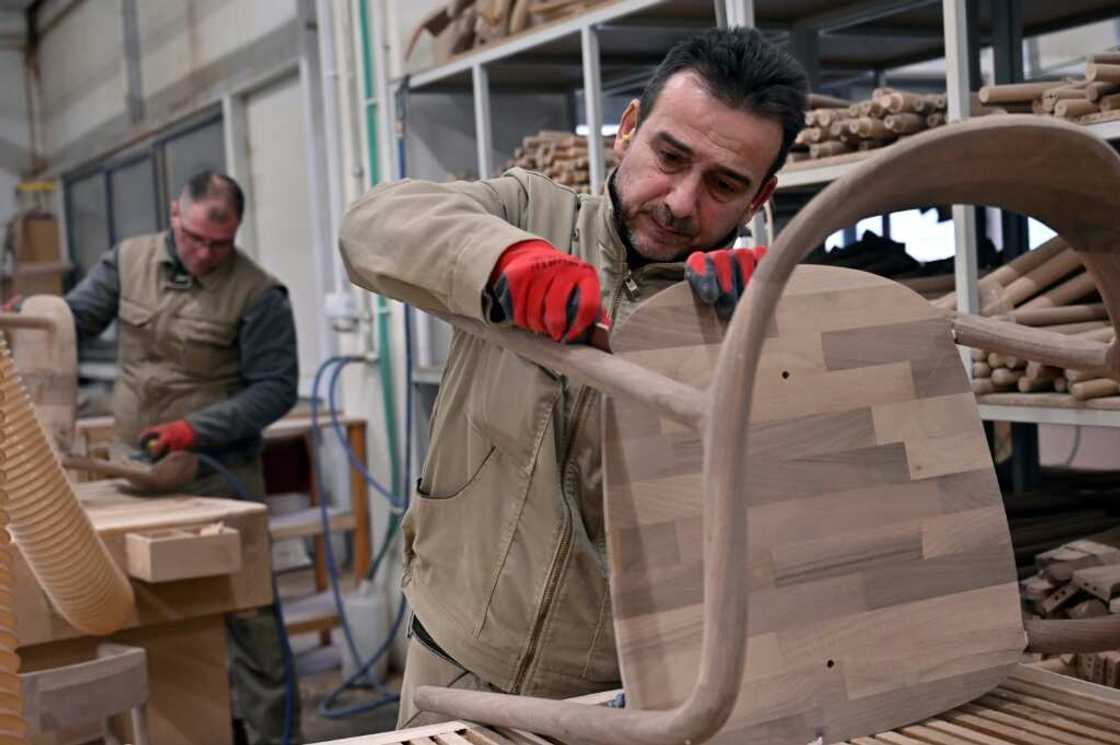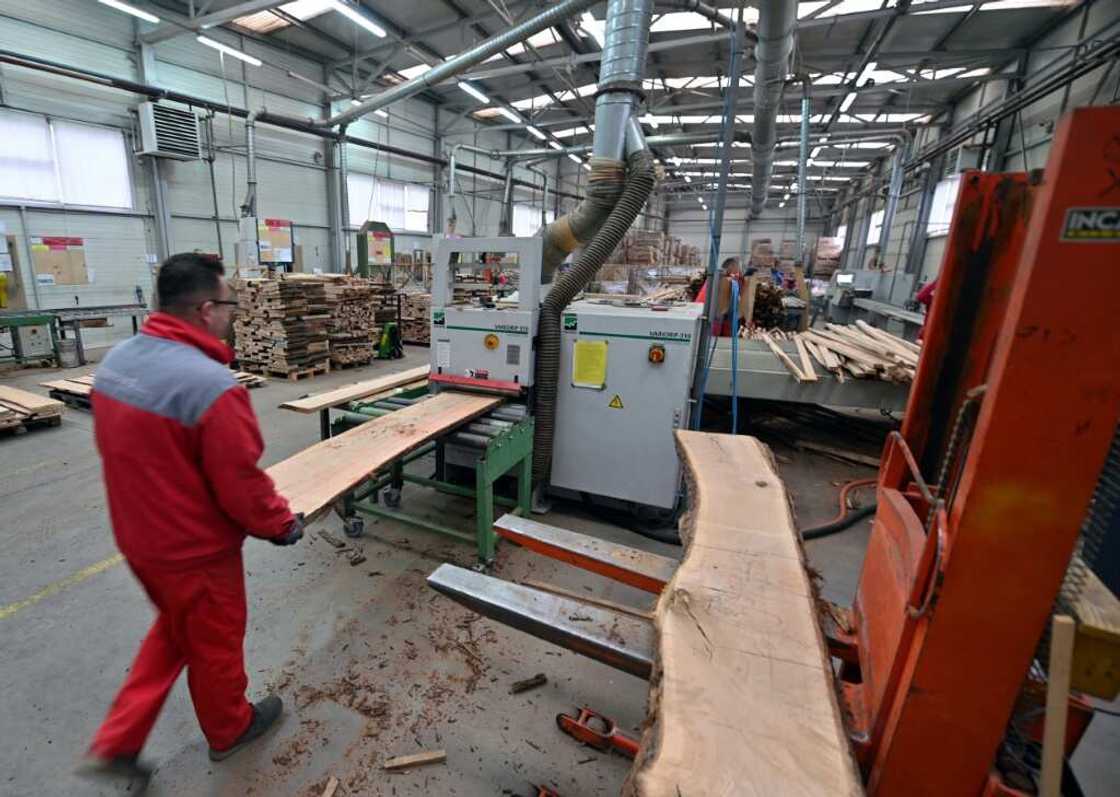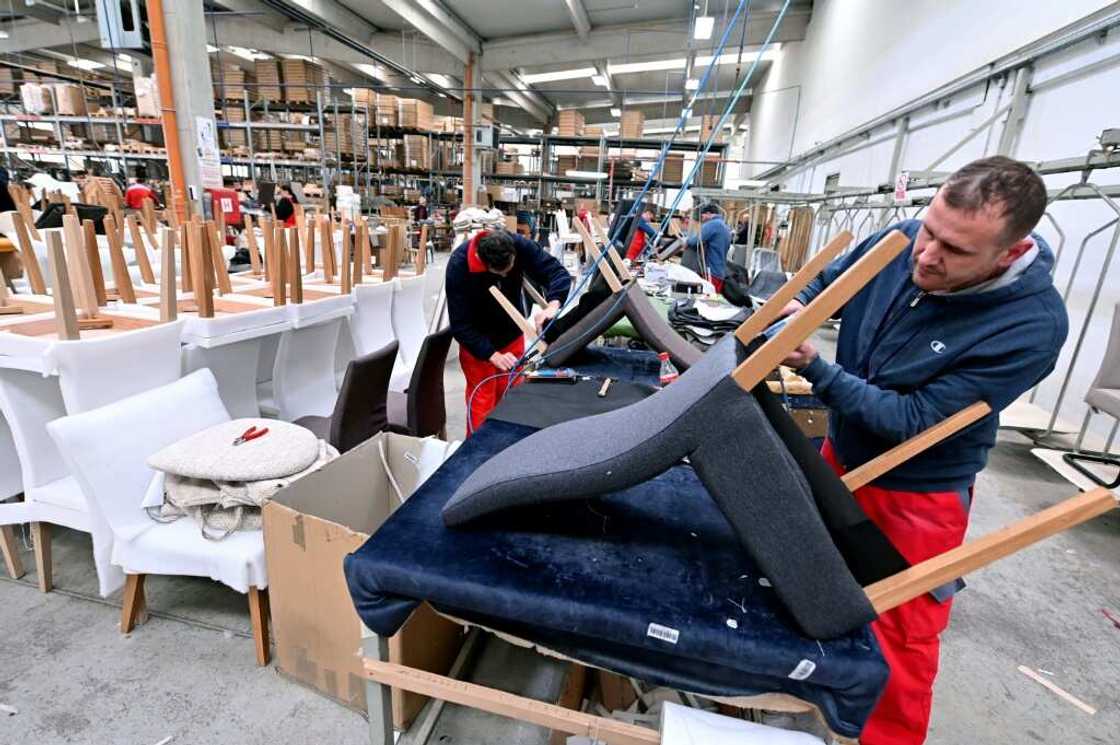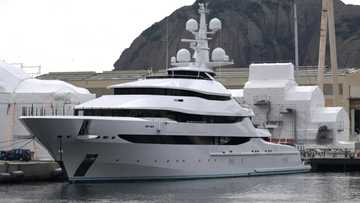Bosnian furniture sector spurs economic growth

Source: AFP
PAY ATTENTION: Click “See First” under the “Following” tab to see Legit.ng News on your Facebook News Feed!
The screech of chainsaws echoes through a Bosnian forest edged by snowy peaks, where lumber is to be crafted into high-end furniture to adorn European or South Korean homes.
The Bosnian furniture industry has seen steady growth, punctuated by an unexpected boom during the Covid-19 pandemic as supply chains in China ground to a halt, allowing new competitors to edge into a lucrative market.
It has proven to be a rare success story in the Balkan country that has been plagued by decades of economic malaise following a disastrous civil war in the 1990s.
In the northern Bosnian town of Tesanj, the furniture company Artisan has been key to the sector's surge. Its employee headcount has jumped from 200 to 300 in the past three years alone, according to sales manager Armin Huremovic.
Founded in 2007, the company made its mark abroad five years later at an international trade fair in Cologne, Germany.
"It took us a long time to gain trust because we come from Bosnia," Huremovic told AFP.
PAY ATTENTION: Join Legit.ng Telegram channel! Never miss important updates!
But the gamble has paid off.
$855 for a chair
Their hardwood furniture -- some designed by the likes of Canadian-US artist Karim Rashid and German product designer Michael Schneider's firm -- is now exported to more than 65 countries.

Source: AFP
They offer chairs that sell for around 800 euros ($850) and tables that easily fetch nearly 9,000 euros.
As a result, almost all production is exported with inventory often beyond the reach of buyers in Bosnia, where the average salary is just 570 euros a month.
Even then, Bosnia has captured only a minimal share of the European furniture market, estimated to be worth about 96 billion euros in 2020.
The country is rich, however, in one of the industry's major building blocks -- wood.
According to Ognjenka Lalovic, an official at the Bosnian Chamber of Foreign Trade, the lumber industry "accounts for 10 to 15 percent of total exports".
Those exports have steadily grown for years, although there are fears of a setback in 2023 due to the economic fallout linked to the war in Ukraine.
The sector owes its success to "quality raw materials, an experienced workforce and tradition", says Lalovic.
Forest cover
"We are one of the few countries in Europe where 60 percent of the surface is covered by forests."

Source: AFP
Located in the Dinaric Alps, Bosnia is blanketed by dense woodlands, including one of the last primary forests on the continent -- Perucica -- in the southeast.
Eldin Sabeta, head of sales at Standard Furniture Factory -- one of the country's largest exporters, said Bosnian producers have consistently crafted superb products at more affordable prices compared to many competitors.
Like other local manufacturers, the company specialising in hardwood dining room pieces has reaped the rewards of the upheaval caused by the coronavirus.
Faced with difficulties importing from China and Asia at large, European outlets have increasingly turned to Balkan manufacturers.
"We've seen a net increase over the past two years," says Sabeta. "Every month, a new customer knocks on our door."
"They need reliable suppliers," he adds.
Source: AFP





